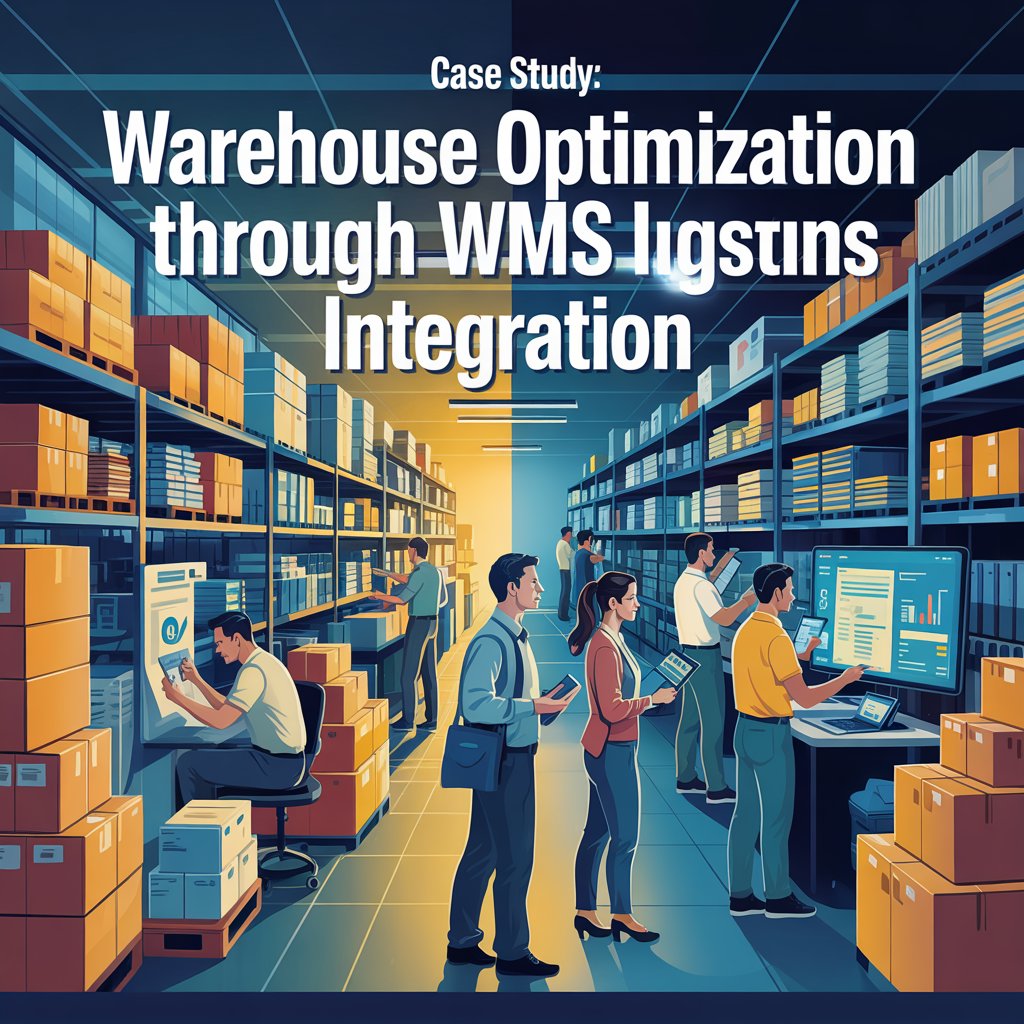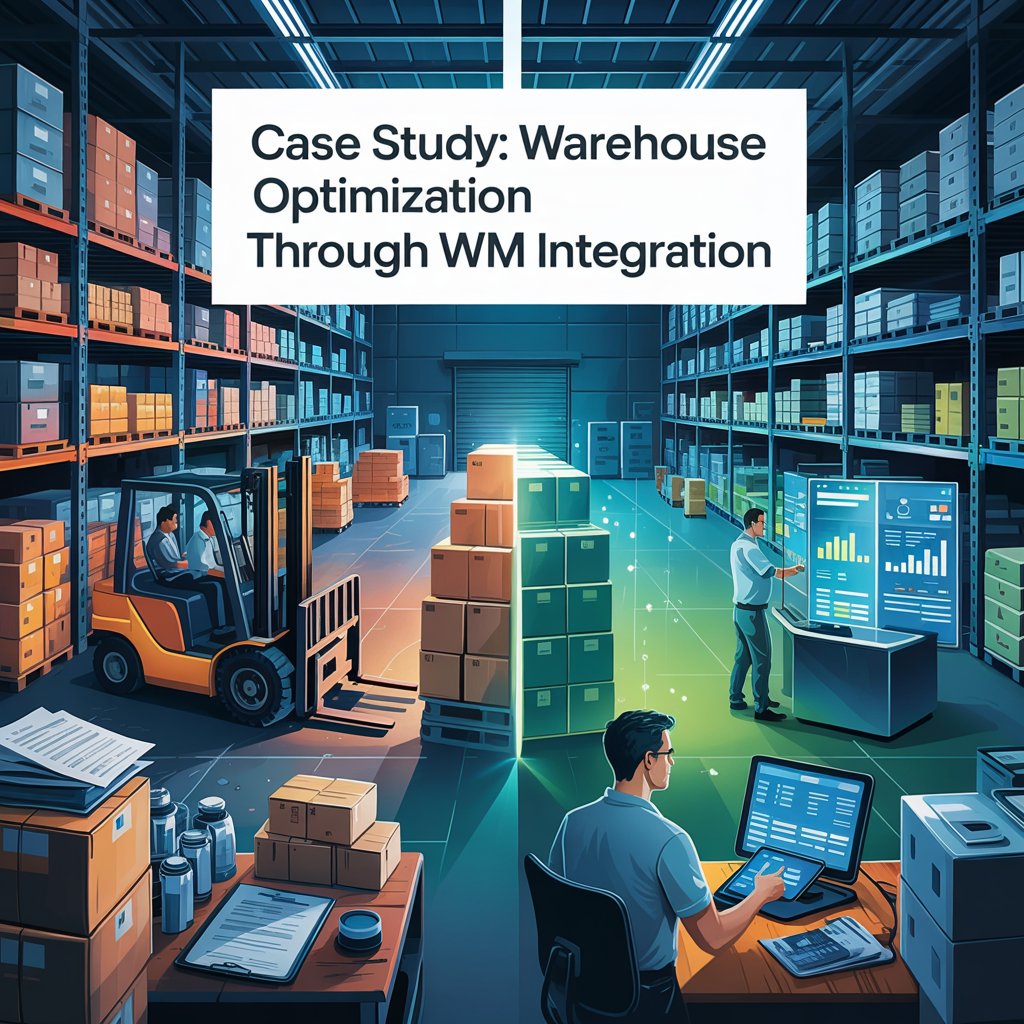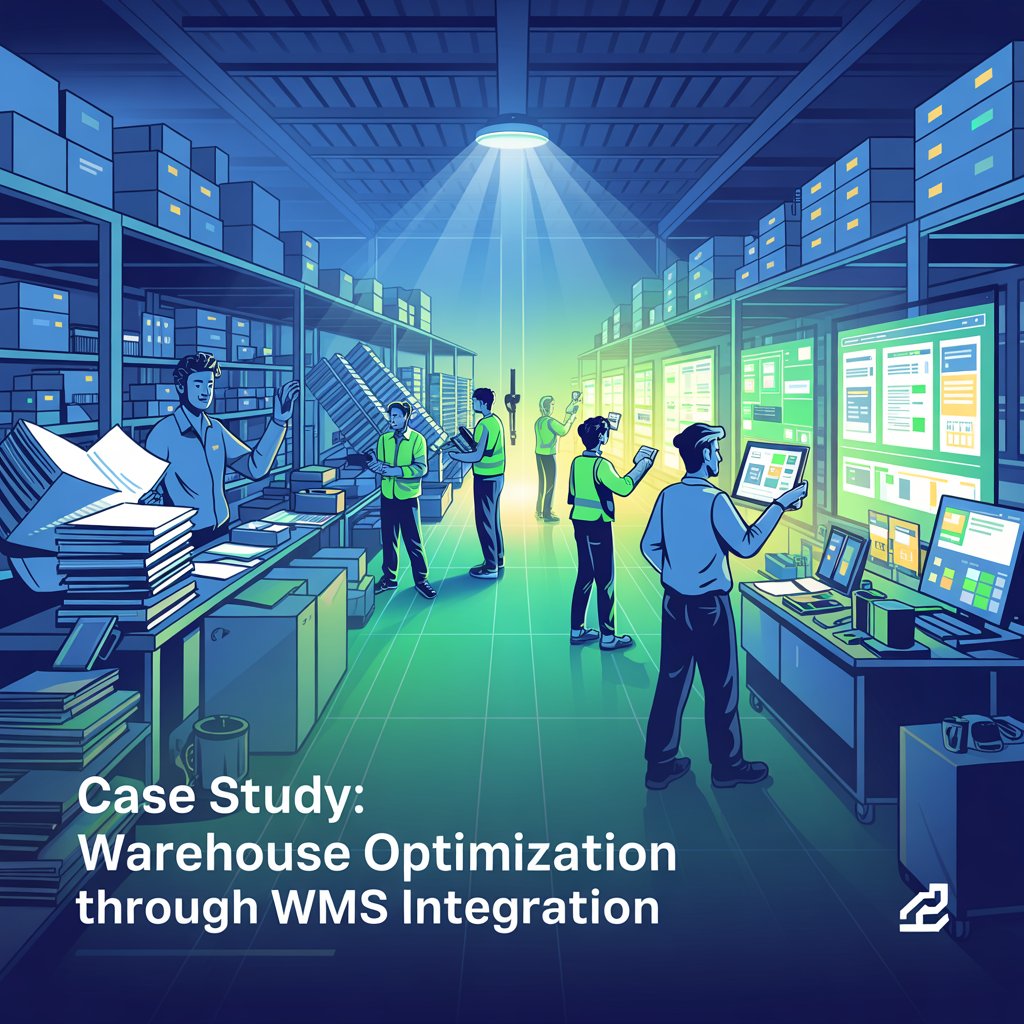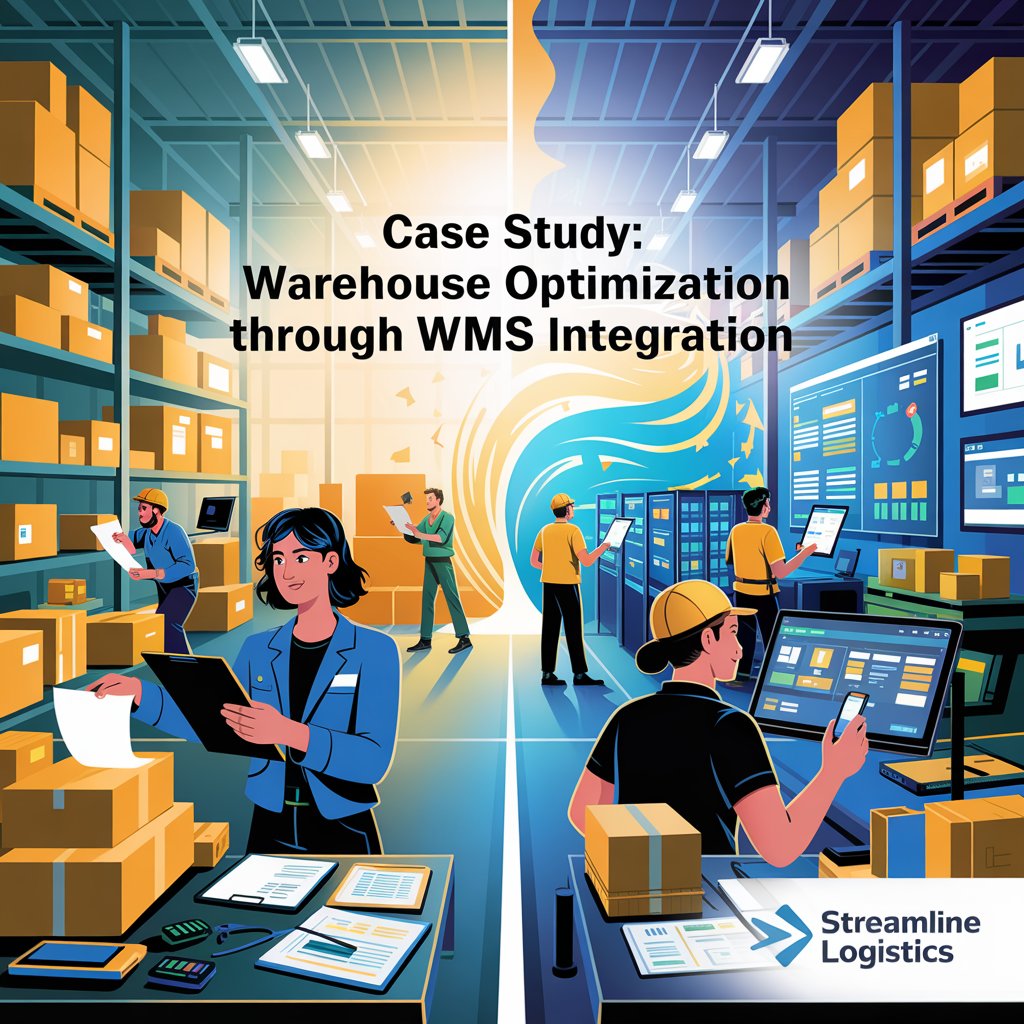Case Study: Warehouse Optimization Through WMS Integration

🏭 Company Background
Company: DeltaLogix
Industry: Third-Party Logistics (3PL)
Warehouse Size: 65,000 sq ft
Daily Orders: ~800 shipments
Previous System: Manual processes + spreadsheets
DeltaLogix operated in a growing logistics market, but was struggling with:
- Inaccurate inventory levels
- Delayed order fulfillment
- High labor costs due to manual coordination
- Limited visibility across receiving, picking, and shipping
They knew it was time for change — and the answer was a modern WMS integration.

🎯 Objectives
DeltaLogix had clear goals for optimization:
- Improve inventory accuracy to 98%+
- Reduce picking errors and labor hours
- Streamline real-time order tracking
- Enable seamless integrations with ecommerce and TMS platforms
⚙️ The WMS Implementation Process
The WMS integration was carried out in six phases:
1. Assessment & Workflow Mapping
- Identified current bottlenecks
- Mapped inbound, storage, and outbound workflows
- Defined user roles and system permissions
2. System Configuration
- Set up zones, bins, and barcode tracking
- Imported product data and linked SKUs
- Integrated with ecommerce and transportation platforms
3. Training & Testing
- Staff trained on scanning and real-time updates
- Pilot testing in one section of the warehouse
4. Go-Live & Monitoring
- Full transition completed in 4 weeks
Real-time dashboards deployed for order tracking

📈 Results After 90 Days
The improvements were fast and measurable:
KPI | Before WMS | After 90 Days |
Inventory Accuracy | 91.2% | 99.3% |
Order Picking Error Rate | 3.8% | 0.9% |
Order Cycle Time | 4.1 hours | 2.3 hours |
Labor Hours per Order | 0.56 | 0.34 |
Customer Satisfaction Score | 82/100 | 94/100 |
These gains translated into $38,000/month in labor savings and a 30% boost in throughput.
🔍 Lessons Learned
- Start small. A phased rollout helped avoid disruption.
- Train your team. Staff adoption made or broke each process.
- Use data dashboards. Real-time visibility uncovered trends fast.
- Choose a flexible system. Customization was key to adapting to warehouse-specific needs.

🚀 Final Thoughts
Warehouse optimization case study highlights how WMS integration is more than just a software change — it’s an operational upgrade. Through better visibility, automation, and control, DeltaLogix was able to transform its warehouse into a high-performance logistics engine.
For companies looking to modernize Warehouse optimization case study, a well-implemented WMS is one of the most impactful investments you can make.
